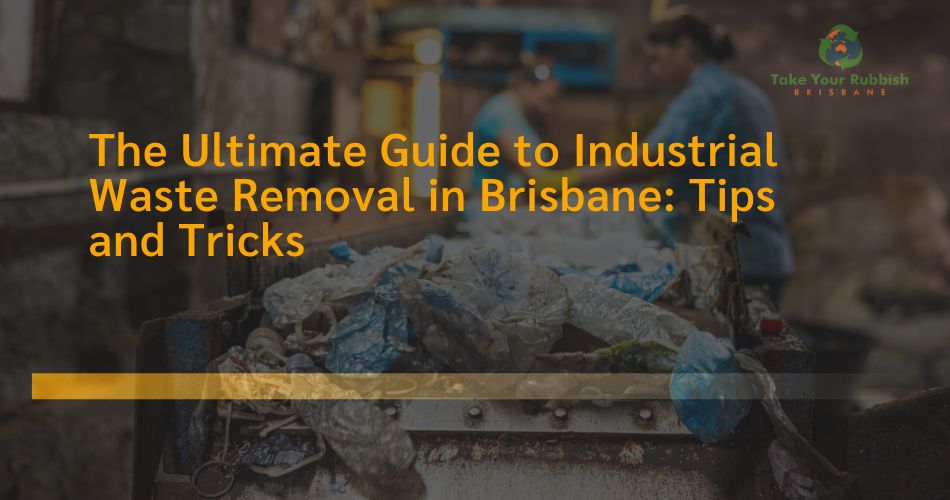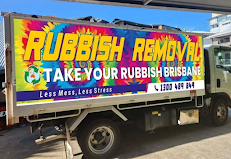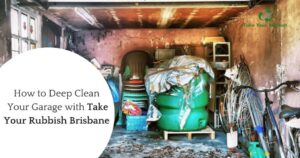Industrial waste is a significant byproduct of various manufacturing processes, construction activities, and other industrial operations. Understanding its types, sources, and environmental implications is important for mitigating its impact on our surroundings. Improper disposal can lead to serious consequences for both the environment and regulatory compliance. So, it’s essential to adopt proper waste management practices. In this Ultimate Guide to Industrial Waste Removal in Brisbane, we will explore some important tips and tricks for industrial waste removal in Brisbane efficiently and responsibly. We want to help you understand where industrial waste comes from in our area and how to manage it responsibly. We’ll cover the best ways to handle waste and discuss new ideas that are emerging. By the end, you’ll have a comprehensive understanding of industrial waste removal in Brisbane.
Understanding Industrial Waste
Definition and types of industrial waste
Industrial waste refers to any waste generated by industrial activities, such as manufacturing, construction, or chemical production. This waste can come in various forms, including solid, liquid, or even gases. For example, leftover materials from factories, wastewater from industrial processes, or emissions released into the air are all types of industrial waste.
Common sources of industrial waste in Brisbane
In Brisbane, industrial waste comes from a range of sources. Manufacturing plants produce waste materials like metals, plastics, and chemicals. Construction sites generate debris such as concrete, wood, and packaging materials. Even everyday activities like cleaning machinery can create hazardous waste like oils or solvents. Essentially, any large-scale production or operational activity can lead to industrial waste in Brisbane.
Environmental and regulatory implications of improper disposal
Improper disposal of industrial waste can have serious consequences for the environment and public health. When waste is not managed correctly, toxic substances can leach into soil and waterways, contaminating ecosystems and harming wildlife. Airborne pollutants from burning waste can lead to air quality issues.
The Role of Take Your Rubbish Brisbane
Take Your Rubbish Brisbane is the no.1 industrial waste removal service provider in Brisbane. We play important role in managing and removing industrial waste across Brisbane. We specialize in helping businesses, whether it’s a factory, construction site, or any industrial setting. From collecting the waste to ensuring it’s properly sorted and disposed of according to regulations, we handle the entire process efficiently. This means businesses can focus on their core operations without worrying about the complexities of industrial waste. Take Your Rubbish Brisbane not only ensures that waste is safely removed but also aims to minimize its environmental impact, promoting sustainability in the community. Our expertise and dedication make us a trusted partner for any business looking to manage their industrial waste effectively in Brisbane.
Key Tips for Efficient Industrial Waste Management
Industrial waste management is important for protecting the environment and ensuring businesses operate responsibly. Here are some simple tips to manage industrial waste efficiently:
- Reduce Waste at the Source: The best way to manage waste is to produce less of it in the first place. Businesses can minimize waste by using raw materials more efficiently and adopting practices that reduce excess packaging or unused materials.
- Reuse and Recycle: Instead of throwing things away, try to find ways to reuse them within your operations. For example, packaging materials can often be reused for shipping or storage.
- Segregate Waste Properly: Different types of waste require different disposal methods. Make sure your waste is sorted correctly at the source so that recyclable materials don’t end up in landfills and hazardous materials are handled safely.
- Train Employees: Proper training for employees is essential to ensure that waste management practices are followed correctly. Everyone in the organization should understand the importance of reducing waste and how to segregate it properly.
- Comply with Regulations: Industrial waste management is governed by regulations to protect human health and the environment. Stay informed about local laws and regulations regarding waste disposal and ensure compliance to avoid fines and penalties.
Best Practices for Industrial Waste Removal
Industrial waste removal involves getting rid of waste materials produced by factories and other industrial processes. It’s important to handle this waste properly to protect the environment and people’s health. Here are some key best practices:
- Segregation: Sort different types of waste (like chemicals, metals, and liquids) into separate categories. This makes it easier to handle and recycle them properly.
- Storage: Store waste securely in designated containers or areas. This prevents leaks or spills that could harm the environment or workers.
- Transportation: Use safe methods to move waste from the factory to disposal or recycling facilities. This might include using specialized vehicles or containers.
- Disposal: Dispose of waste according to regulations and guidelines. Some waste can be recycled or treated to reduce its impact on the environment.
- Documentation: Keep records of how much waste is produced and where it goes. This helps ensure compliance with laws and track improvements over time.
Common Challenges and Solutions
Common changes include things like volume of waste generated, safety, legal rules etc. Industries can produce a lot of waste, which is hard to manage. Some waste is dangerous, so handling it safely is crucial. Also, there are strict laws about how waste should be disposed of which need to be followed to stay safe from fines and legal issues.
Solutions to these challenges are recycling, treatment, using technology, training workers etc. Turn waste into new products can reduce how much is thrown away. We must treat waste to make it less harmful or easier to handle. Use advanced machines and methods to manage waste more efficiently. Teach workers how to handle waste safely and follow rules.
Future Trends in Industrial Waste Management
Imagine a world where factories and industries produce a lot of waste. This waste can be harmful to the environment if not handled properly. So, experts are always looking for better ways to manage this waste. They study trends—like new technologies or ideas—that could change how we deal with industrial waste in the future. For example, one trend might be using advanced machines to sort and recycle waste more efficiently. Another trend could be finding ways to turn waste into useful things, like energy or new products. In the future, industrial waste management might look very different from today. It’s all about finding smarter, safer, and more sustainable ways to handle the stuff we don’t need anymore.
How to Get Started with Take Your Rubbish Brisbane
To get started with Take Your Rubbish Brisbane you can start with reaching out either by phone, email, or through website contact forms. Provide us details such as the type of rubbish you need removed, the quantity, and any specific requirements or instructions. Then you will get a detailed quote based on factors such as volume of rubbish, type of materials, distance from base of operations, and any additional services required. If the quote is acceptable, we proceed for scheduling date and time of removal. Then finally you will get your waste removed without any hassle and payment will be settled based on agreements.
Conclusion
Industrial waste, generated from various manufacturing and construction processes, poses significant environmental and health risks if not handled properly. Understanding the types, sources, and implications of industrial waste is important for adopting effective waste management practices. By focusing on reducing waste at its source, promoting reuse and recycling, and ensuring proper segregation and disposal, businesses can minimize impact of industrial waste in environment and workers working in the industry. Training employees and staying updated on local regulations are vital steps toward achieving sustainable waste management practices. Moreover, implementing best practices such as proper waste segregation, secure storage, safe transportation, and careful documentation enhances efficiency and safety in waste removal processes. Despite the challenges posed by the volume and diversity of industrial waste, innovative solutions like recycling technologies and waste-to-energy initiatives are paving the way for a more sustainable future.




